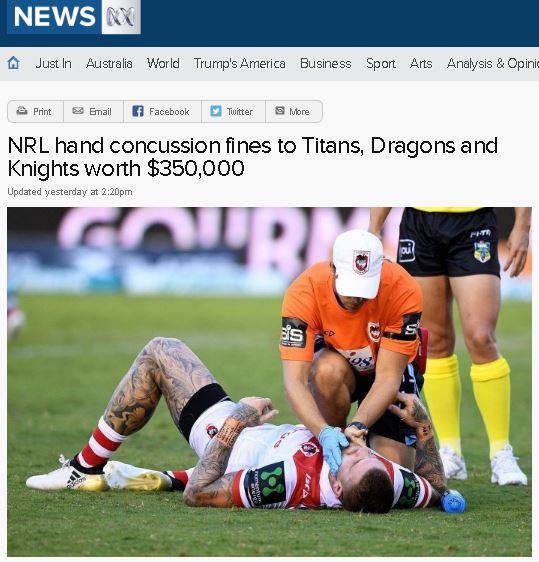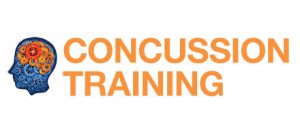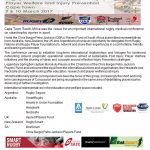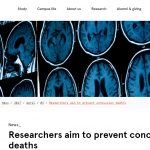NRL Applauded For Tough Stance On Concussion
Leading concussion organisation Headsafe has applauded the NRL’s actions in imposing significant fines on clubs which were deemed to have breached its concussion guidelines over the weekend.
Gold Coast, St George Illawarra and Newcastle are facing fines totalling $350,000 after being issued with breach notices for failing to follow the NRL’s concussion rules during round three.
“The NRL is to be congratulated for following up its tough rhetoric re concussion policy adherence with sanctions” says Headsafe founder, Dr Adrian Cohen.
“Clearly the education message is getting through, with commentators and fans alike asking questions about why players are allowed to continue with signs they are obviously concussed”.
Signs of concussion include being disorientated, stumbling, lack of coordination, blank or vacant stare and the “rag-doll” phenomenon when a player falls to the ground without putting their hands out to protect their fall. In these circumstance, or when a player is witnessed unconscious, there is no need for further review by the medical team and immediate removal from play with no return is mandatory.
The only grey areas are when the player is not clearly witnessed unconscious by the medical team, either directly or with sideline video monitoring now present at all NRL fixtures. In these cases, a free interchange occurs and the player undergoes the Head Injury Assessment (HIA) in the dressing rooms by the team doctor.
Elite Rugby Union now utilises an independent match day doctor to make HIA reviews, which the NRL may also consider implementing.
Dr Cohen sees this as the tip of the concussion management iceberg.
“Concussion has short, medium and long term consequences”, he explains. “We all understand a player being knocked down or out and not being able to continue that game. Most players will recover with little intervention given time, just like a hamstring injury, by resting the injury and gradually increasing the workload before returning to practice or play, provided there are no setbacks”.
Prolonged recovery in the medium term is called Post Concussion Syndrome, and these players may take more time and need more medical intervention to recover.
The long term consequences are still being discovered, as personified by Will Smith in the film “Concussion” focusing on the work of Dr Bennet Omalu in the USA and the disease called Chronic Traumatic Encephalopathy or CTE.
“Clearly”, says Cohen, “we need to study these long term effects in more detail”, and investigation of the long-term health of rugby players is soon to gain an international perspective, with the launch of a Global Rugby Health Research Programme. The programme consists of studies at Leeds Beckett in the UK, New Zealand, Canada and Australia, making it the first of its kind.
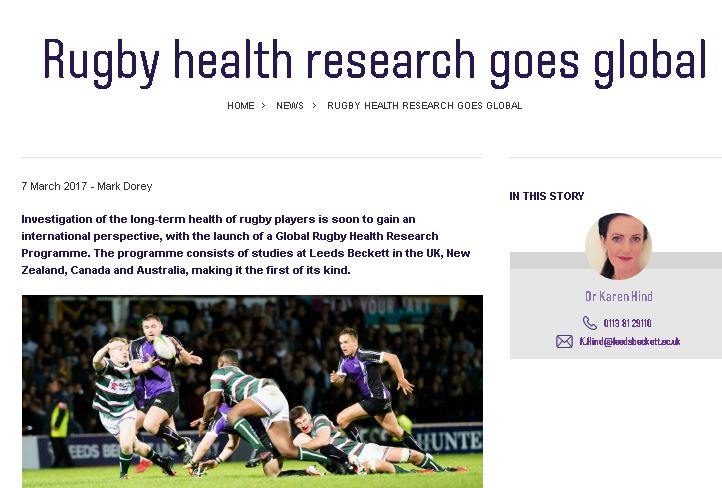 The collaboration involves researchers from AUT University (NZ), Leeds Beckett University (UK), the University of Aberdeen (UK), the University of Regina (Canada), the University of Victoria (Canada), HeadSafe (Australia), the University of Sydney (Australia), La Trobe University (Australia) and the University of Western Australia. Co-Principal Investigators will oversee research activity in each country.
The collaboration involves researchers from AUT University (NZ), Leeds Beckett University (UK), the University of Aberdeen (UK), the University of Regina (Canada), the University of Victoria (Canada), HeadSafe (Australia), the University of Sydney (Australia), La Trobe University (Australia) and the University of Western Australia. Co-Principal Investigators will oversee research activity in each country.
The latest addition to the research collaboration came earlier this month, with Australia joining the programme. Dr Adrian Cohen (Headsafe), Dr Clare Fraser (University of Sydney), and Dr Alan Pearce (La Trobe University) are currently developing the ethics application for the study, to enable data collection for health and cognitive functioning research, as well as clinical assessment of concussion, physiological biomarkers, bone health and brain health.
While all the countries’ studies focus on rugby players, the Australian study is unique in its inclusion of athletes from Australian Rules Football, soccer, and equestrian, while the Canadian study includes retired ice hockey and American Football players. This will provide cross-sport analysis of the long-term effects of participation.
“We are delighted to announce that this important research has also been extended to Australia and to welcome our new collaborators to the team,” says Dr Karen Hind of Leeds Beckett University. “Our interdisciplinary approach is enabled by the breadth of expertise across the research team, and by expanding further on the international scale, we are achieving a greater representation of former-players and understanding of player welfare post-retirement across the globe.”
Dr Adrian Cohen is Co-Principal Investigator of the Australian study and founder of the not-for-profit Headsafe, an organisation that has been leading research into the short and long-term effects of concussion, using impact sensors, biomarkers and visual analysis, physiological technologies such as Transcranial Magnetic Stimulation (TMS), and sideline brain wave testing.
“This is the ideal opportunity to add past players from our part of the world to this landmark international research programme,” he says. “The long term effects of participation in sport need to be understood and acknowledged in order that we can care for players today and into the future. Sport has so many positive benefits…let’s increase our understanding to give participants – and their families – confidence that we are looking after them throughout their careers and after they stop playing”.
To take part in the programme’s core tests of general health and cognitive functioning, retired rugby players and retired non-contact athletes from the UK, Canada and Australia)are invited to sign up via www.leedsbeckett.ac.uk/ukrugbyhealth. Participants will take the general health questionnaire (GHQ) and take part in an online neurocognitive test (CNS Vital Signs).
MORE INFORMATION
Dr Adrian Cohen
Director
Headsafe
+61 418253333


